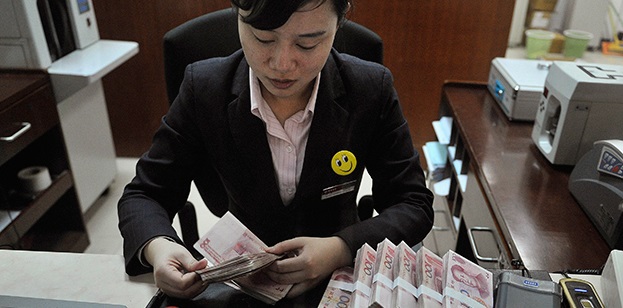Australia now expected to join Asian Infrastructure Investment Bank

Don’t know your AIIB from your ADB? Here’s a primer. The Australian government first resisted joining this initiative by China, but is now expected to join.
What is the Asian Infrastructure Investment Bank?
China is establishing a new multi-billion dollar development bank to fund much needed infrastructure projects across Asia. It will enable the construction of railway lines, ports, roads, telecommunications and other projects. It fits with Australia’s initiatives at G20.
It is not just a Chinese bank, though China may well provide the most significant slice of the capital and is putting up the first $US 50 billion. The formation of the bank was announced at a signing ceremony in Beijing on 24 October, with 21 countries as charter members, including India, Thailand, Malaysia, Singapore, Pakistan and Vietnam.
Contrary to some reports, the AIIB will not be purely a government operation. Wenzhong Zhou, secretary-general of the influential Boao Forum for Asia, and a former vice-minister in the Chinese government, told us that the private sector will participate. The aim would be collaborating on big projects, citing a possible rail link to India, with a branch stretching through the Caucasus to Europe.
Why wasn’t Australia a founder member of the bank?
China thought that Australia would be a founder member, and some ministers, notably treasurer Joe Hockey were seen as intimating this would be the case. Treasury officials had been negotiating with Beijing throughout 2014. However, just before the signing ceremony, Australia was reportedly subjected to heavy lobbying by the United States not to join with US secretary of state John Kerry lobbying foreign minister Julie Bishop and President Barack Obama phoning Tony Abbott. After a Cabinet debate, Australia pulled out. One reason canvassed was discomfort with the proposed rules and governance of the bank.
Are there issues with the governance of the bank?
The reported discomfort seems unfounded. According to Wenzhong Zhou and Bob Carr, former foreign minister, the articles of association and governance are yet to be negotiated. Australia is still invited to participate in the formation, and has also been offered the prospect of senior positions at the bank, which will not be finally established until the end of 2015.
Why don’t the Americans want Australia to join?
The official reason is that the bank is not needed since the region is already well served by the Washington-based World Bank and by the Asian Development Bank (ADB). The Manila-based ADB has a capital base of $US 160 billion +, and the World Bank $US 223 billion. By comparison, the AIIB proposed starting capital is small. Critics of the new bank suggest that it may not live up to the standards regarded as essential in development lending. China rejects this outright. The suspicion is that Washington’s motives in dissuading its allies from joining is that it fears that the new bank will enhance Beijing’s already considerable economic influence in the region. It is noteworthy that countries that have been critical of China’s military expansion in the East and South China seas are supporting the AIIB, and that one country that initially demurred, Indonesia, has since decided to join.
Asia’s infrastructure needs are estimated to amount to about $US3 trillion. What is China’s response to the US argument that the work of the existing banks, especially the ADB, could be extended to fill the funding void?
China does not believe it. The Chinese are frustrated about not being given the kind of role that the world’s second largest economy deserves in either ADB or the World Bank. As The Economist put it, “the ADB is dominated by Japan; Japan’s voting share is more than twice China’s and the bank’s president has always been Japanese. Reforms to give China a little more say at the International Monetary Fund have been delayed for years and, even if they go through, America will still retain far more power. China is, understandably, impatient for change. It is therefore taking matters into its own hands.”
Will Australia eventually join?
Yes. I think it will coincide with the final signing of the Free Trade Agreement with China towards the end of 2015. The prime minister has been surprised by the depth of feeling in the community on this issue. Both national newspapers, The Australian and The Australian Financial Review, have come out strongly in favour of Australia joining, as have most in the business community. Influential people like former ambassador to Beijing Geoff Raby have also expressed their support.
A further indication that Australia will join the AIIB came with some strong words from Andrew Robb, the trade minister. He was quoted by the reliable Rowan Callick as saying in Beijing, “it’s the wish of everyone in the Cabinet, from the prime minister down”. Mr Robb also said, “Tony Abbott has said publicly that we shall not only join, but shall do so enthusiastically”.
Colin Chapman is immediate past president, AIIA NSW. This article can be republished with attribution under a Creative Commons Licence.